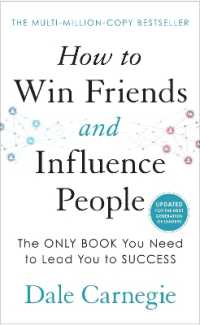📖 Biography
Dale Carnegie: Master of Human Relations
Dale Carnegie was a pioneering figure in the self-improvement movement, best known for his transformative work on human relations and public speaking. His enduring legacy is built upon practical, actionable principles designed to help individuals achieve greater success and fulfillment in their personal and professional lives.
The Genesis of His Philosophy
Born into poverty, Carnegie’s early life instilled in him a deep understanding of the challenges people face in communication and social interaction. His experiences as a traveling salesman and later as a teacher at the YMCA led him to develop courses focused on public speaking and human relations. These courses, which emphasized practical application over theoretical knowledge, quickly gained popularity and formed the foundation of his influential books.
How to Win Friends and Influence People
Carnegie’s most famous work, How to Win Friends and Influence People, published in 1936, became an instant bestseller and remains one of the best-selling books of all time. The book distills his core philosophy into a series of principles aimed at improving interpersonal skills. Key themes include:
- Avoiding Criticism and Complaint: Emphasizing positive reinforcement and understanding.
- Giving Sincere Appreciation: Recognizing and valuing others’ contributions.
- Arousing Eager Want: Motivating others by appealing to their desires.
- Making People Feel Important: Fostering genuine respect and appreciation.
- Being a Good Listener: Encouraging others to share their thoughts and feelings.
- Winning People to Your Way of Thinking: Through empathy, respect, and finding common ground.
Impact and Legacy
Carnegie’s work has had a profound and lasting impact on business, education, and personal development. His principles are not about manipulation but about fostering genuine connections and understanding. The Dale Carnegie Training organization, founded in 1912, continues to offer courses worldwide, carrying forward his mission to empower individuals with the skills to communicate effectively, lead confidently, and build strong relationships.
Conclusion
Dale Carnegie’s contributions to the field of human relations are timeless. His emphasis on empathy, active listening, and genuine appreciation continues to provide a powerful framework for navigating the complexities of human interaction. His legacy reminds us that success in life is often determined not just by what you know, but by how well you connect with and understand others.
Carnegie's principles on human relations and communication continue to be widely taught and applied, making him a lasting figure in the self-help and personal development fields.
His timeless advice on building rapport, influencing others, and effective communication remains highly relevant in today's interconnected world.
